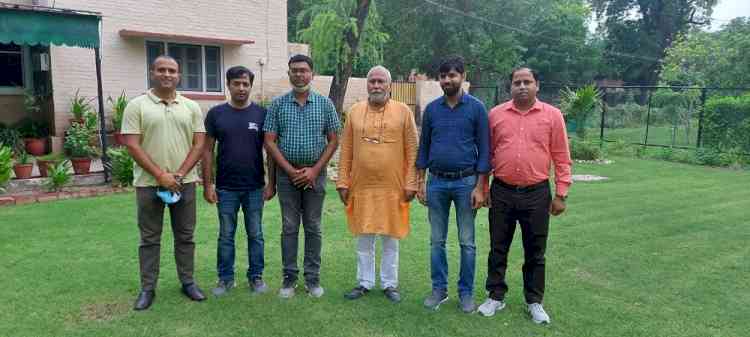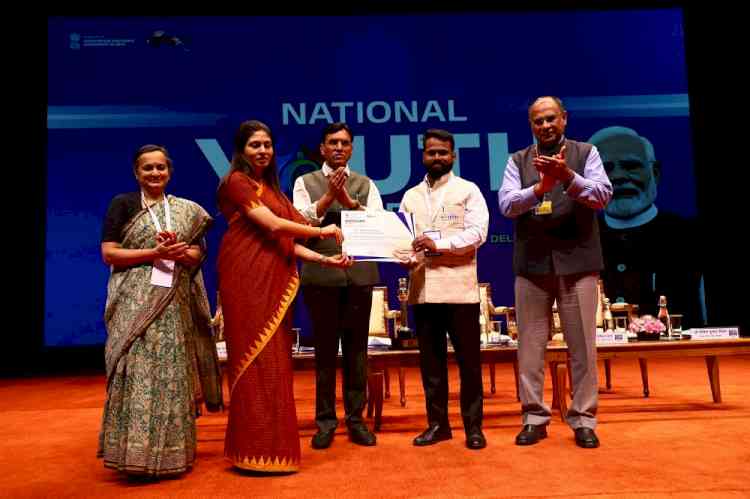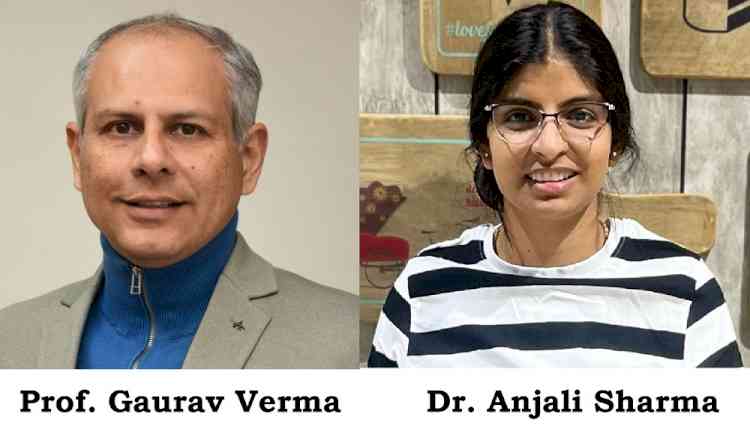Research proposals of 7 newly appointed faculty members of Central University of Punjab selected for UGC’s FRPS Start-Up Research Grant
Seven newly joined faculty members of the university will get UGC’s FRPS total Start-Up Grant of Rs 70 Lakhs to pursue research in their discipline

Bathinda, September 12, 2021: The University Grants Commission’s (UGC’s) Empowered Committee to strengthen the Basic Sciences Research (BSR) environment in the Indian Universities has recommended 7 Project Proposals of the newly appointed faculty of the Central University of Punjab, Bathinda (CUPB) for UGC’s Faculty Research Promotion Schemes (FRPS) Start-Up Research Grant.
The news came with the release of a recent list of 145 recommended candidates by UGC empowered committee on BSR in which seven newly joined faculty members of the Dept. of Biochemistry, Dept. of Computational Sciences, Dept. of Geography and Dept. of Pharmacology at the Central University of Punjab got recommendations for their Project Proposals. The name of these faculty members are Dr. Vinay Kumar Bari, Dr. Ravindresh Chhabra, Dr. Dharmendra Singh, Dr. Pritam Chand, Dr. Uma Shanker, Dr. Hari Krishna Reddy, and Dr. Debapriya Garabadu.
Under the UGC’s FRPS, the above faculty member will get a Start-Up grant of Rs 10 Lakh each to pursue research in their respective field. In this way, CUPB faculty will get a total Start-Up grant of 70 Lakh under UGC’s FRPS.
Prof. Raghavendra P. Tiwari, the Vice Chancellor, congratulated the faculty members who have got recommendations for their project proposals. He exhorted faculty members to make judicious use of their Start-Up Research Grant to create new knowledge in their discipline and to find out innovative solutions to problems of society through qualitative research.
Utilizing this Start-Up Grant, CUPB faculty will conduct research in the areas of Origin and progression of Cervical Cancer; Computational Material Science; Genome Editing; Identifying novel therapeutic strategies to cure metabolic disorders such as Non-Alcoholic Fatty Liver Disease (NAFLD), Non-Alcoholic Steatohepatitis (NASH) disease, and its secondary complications; Analysing the therapeutical potential of herbal medicines in the management of multiple sclerosis; Developing new therapy for the treatment of Alzheimer’s Disease (memory loss); and Modelling the response of glacier dynamics to changing climate in North-western Himalayas.


 cityairnews
cityairnews 








